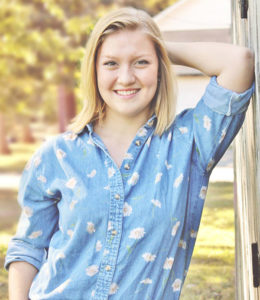Meet the New AHA Staff Member: Sarah Henry

Please welcome the American Humanist Association’s new communications associate, Sarah Henry!
TheHumanist.com: What is your educational and work background?
I graduated from Lynn University in South Florida with a degree in political science and photography. I loved the area and stayed to work in legal research for a corporate HR consulting firm. I moved up to the Washington, DC, area to attend American University, where I’m currently pursuing my master’s in public administration, with a focus in nonprofit management. Between legal research and writing at both the large corporate and small firm level, political field organizing, and serving as the director at Camp Quest Chesapeake, my work background is varied, but largely focused on the same humanist principles.
 TheHumanist.com: How did you first learn about humanism?
TheHumanist.com: How did you first learn about humanism?
I grew up in a secular home that emphasized freethought and worldview exploration, so humanism was never a foreign concept. The term itself was first introduced to me as camper at Camp Quest Ohio, and afterwards I voraciously read as much as I could about the humanist worldview. The compassion for the world that imbues humanism is such an integral part of how I try to view the world and my actions within it, and I was so excited to see that there were organizations and communities with that same viewpoint.
TheHumanist.com: Did you grow up in a traditional religious faith? How did it impact you?
I did not; both of my parents identify as atheists. However, I grew up in a small rural town that was dominated by Christian evangelicals. Growing up in a home that supported my nonreligiosity smack dab in the middle of a community that didn’t taught me so much about carrying myself with grace and courage in the face of anger and hostility. My parents were some of the first people who showed me that you can be a good person, with strong morals and a valuable ethical code, without religion. They still impress me with their unwavering commitment to social justice in their respective fields and among friends and family, and I’m excited to continue that family tradition.
TheHumanist.com: What interested you most about working for the American Humanist Association?
The job posting came at the perfect time—I was looking for a way to refocus all the aspects of my life on doing good work while still putting into practice my experience in the secular movement and my education in the nonprofit sector. Most of my work has been with nonreligious organizations, at both the Secular Student Alliance and Camp Quest. In working with the American Humanist Association, I’m excited to bring my love and passion for the advancement of humanism to a different side of the movement. This position will allow me to grow and develop in new and exciting ways, while still offering the opportunity to live my values and commitments day in and day out.
TheHumanist.com: What book has influenced you the most?
The Book Thief, by Markus Zusak. For many years, I read this book at least once a year, and never tired of it. It’s one of those stories that changes and teaches new lessons as the reader changes and grows, but its core messages remain the same. It inspired my love of reading and demonstrates the importance of love and compassion in the face of hate and misery, no matter how much courage it takes to stand up. I think it’s more relevant every day, and I recommend it to everyone I know!
TheHumanist.com: If you could have dinner with any three people in the world (living or dead), who would they be and why?
I’d love to have dinner with my grandfather again, now that I’m older. He died when I was in middle school, before I knew what questions I would want answered someday! He was a patriot who questioned the reaches of the military he served in, and I’d love to learn more about how he reconciled those conflicts. The second seat at the table would be reserved for Bruce Springsteen. His is a powerful voice for the working class, plus I’m a huge fan! My third dinner guest would be Roxane Gay. Bad Feminist was an enthralling read that prompted a lot of introspection, and I imagine her dinner conversation to be both funny and insightful. (For dinner, we’d have baked mac and cheese. Yum!)
